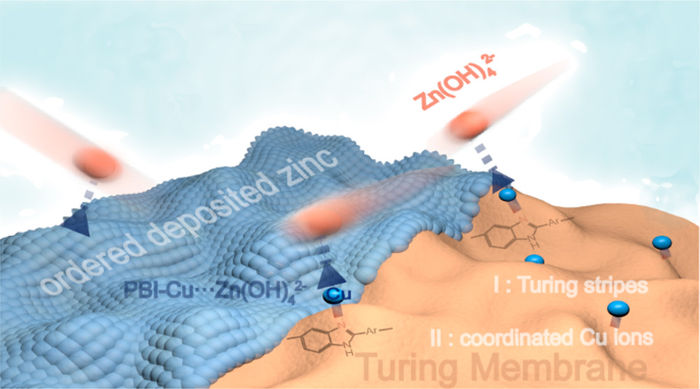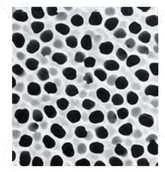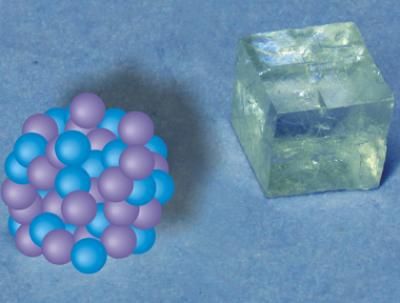Researchers develop Turing membrane to improve performance of zinc-based batteries
Zinc-based batteries are promising options for energy storage devices owing to their low cost and high energy density. However, they may encounter serious dendrite issues, especially at high areal capacities and current densities.

Dendrite-free zinc-based battery with high areal capacity developed via the region-induced deposition effect of turing membrane.
DICP
Recently, a research team led by Prof. LI Xianfeng from the Dalian Institute of Chemical Physics (DICP) of the Chinese Academy of Sciences developed novel membranes for zinc-based batteries, achieving uniform zinc deposition with high areal capacity and current density.
"We proposed a novel membrane featuring ordered undulating stripes called Turing Patterns, which can effectively suppress zinc dendrites and improve ion conductivity," said Prof. LI.
The crests and troughs in the proposed membrane could effectively adjust the Zn(OH)42- distribution and provide more zinc deposition space. The coordinated Cu ions during membrane formation could interact with Zn(OH)42-, further smoothing zinc deposition.
The researchers found that even at a high current density of 80 mA cm-2, the Turing membrane enabled an alkaline zinc-iron flow battery (AZIFB) to work stably with an ultrahigh areal capacity of 160 mAh cm-2 for approximately 110 cycles, showing an energy efficiency of 90.10%. This is by far the highest value ever reported among zinc-based batteries with such a high current density.
This work provides a new idea for developing high stability zinc-based batteries.
Original publication
Other news from the department science
These products might interest you
Most read news
More news from our other portals
See the theme worlds for related content
Topic World Battery Technology
The topic world Battery Technology combines relevant knowledge in a unique way. Here you will find everything about suppliers and their products, webinars, white papers, catalogs and brochures.

Topic World Battery Technology
The topic world Battery Technology combines relevant knowledge in a unique way. Here you will find everything about suppliers and their products, webinars, white papers, catalogs and brochures.































































